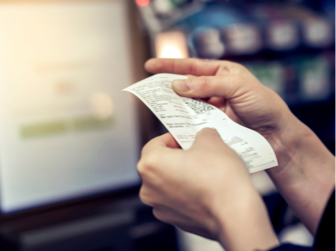How does South Africa’s petrol price measure up? While citizens enjoyed price cuts towards the end of 2024, recent developments in politics and oil prices are likely to influence costs for both consumers and the automotive industry. What lies ahead for 2025? While it may be too soon to make definitive predictions, we have a glimpse of the road South Africans can expect to travel as the year unfolds.
An interesting year ahead For South Africa's petrol price
Since the November 2024 U.S. election, Experts have been speculating on the Trump administration's strategies for strengthening the dollar and the potential responses of emerging market currencies. A stronger focus on domestic issues in the U.S. could lead to short-term growth, but also increase inflationary pressure, limiting control over inflation and reducing the ability to cut interest rates.
In light of this, fuel in South Africa will soon experience said fluctuations, particularly diesel. The bad news for South Africans is, according to the Central Energy Fund (CEF), diesel prices are projected to increase by approximately R1.10 to R1.15 per litre, while petrol prices may go up by R1.00 per litre.
How are petrol prices determined?
The Automobile Association mentions that five elements are taken into account when determining petrol prices:
- Slate Levy: The government relies on a slate account, a self-adjusting mechanism that deals with everyday changes in petrol pricing. Over recoveries are assessed (where consumers pay too much) and under recoveries (where consumers aren’t paying enough).
- General Fuel Levy: The National Treasury administers the tax that gets added to every litre of petrol.
- Road Accident Fund Levy: The South African State Insurer offers personal injury insurance to all drivers if they’ve been in an accident.
- Basic Fuel Price: A South African importer would measure how much it would cost to buy petrol from an international seller. This includes the cost of transporting petrol, insuring it against loss, and eventually, selling the product across the country.
- Wholesale and retail margins, and distribution costs: Wholesale margins are the amount refineries charge for making and exporting petrol while still making a profit. Retail margins are the extra costs added by oil companies when selling petrol at petrol stations. In South Africa, the Department of Energy works out the retail margins.
Factors affecting the price
The rand has experienced depreciation against the dollar, trading at approximately R18.82/USD on January 2, 2025, compared to R18.76/USD on December 31, 2024.
.This depreciation contributes to increased import costs for crude oil and refined products, thereby influencing domestic fuel prices.
- International oil price volatility has led to adjustments in South African fuel prices. In December 2024, both grades of petrol increased by 17 cents per litre, while 500 ppm diesel rose significantly by 55 cents per litre. These increases have added to inflationary pressures, which are already a concern for many households.
- South Africa's annual inflation rate inched up to 2.9% in November 2024 from 2.8% in October—a four-year low. Although this is below the South African Reserve Bank’s target midpoint of 4.5%, the rising cost of essentials has triggered public frustration.
- Higher fuel prices drive up transportation costs, directly impacting the prices of goods and services across all sectors. For households, stagnant disposable incomes mean more money is spent on transportation, leaving less for other necessities. Businesses, especially in logistics and transportation, face rising operational costs, often forcing them to either pass these costs onto consumers or cut back on expenses.
- These dynamics contribute to a cycle where inflation affects every aspect of economic activity, from consumer spending to business operations.
How South Africa’s fuel pricing compares to other countries
Back in September 2024, the global average cost of gasoline was $1.28 per litre (approximately R22.30). As of January 1, 2025, petrol prices in South Africa were as follows: 93 Octane Petrol was priced at R21.34 per litre and 95 Octane Petrol at R21.59 per litre in inland regions. Coastal regions saw slightly lower prices, with 93 Octane Petrol costing R20.55 per litre and 95 Octane Petrol at R20.80 per litre. Despite these differences, fuel costs remain high overall.
Economic conditions vary from country to country, influencing how these prices impact consumers. According to global gasoline price data, South Africa ranks 66th out of 157 countries for the highest petrol prices per litre, placing it above the global average. If fuel prices climb above the R23.50 per litre mark in the coming months, South Africa could move into the top 50 most expensive countries for fuel—a concerning trend for a nation once known for more affordable energy costs.
The future ahead
Naamsa (The Automotive Business Council) revealed in its latest press release that the South African car market could rebound in 2025, driven by several positive factors. In late 2024, the South African Reserve Bank cut interest rates twice—the first time in four years—and inflation slowed down. These changes, coupled with the lowest fuel prices in three years, have eased financial pressures on consumers, boosting confidence and disposable income.
The economy is expected to grow slowly, with the GDP expected to increase by approximately 1.5% in 2025. This growth is being driven by business and consumer confidence, supported by the positive developments in key sectors like electricity and transport.
On a global scale, inflation may take a backseat as political uncertainty becomes the primary concern. Events such as elections and trade tensions from 2024 could influence economic trends in 2025, particularly in the US and the G7 countries, where growth is expected to remain slow. Despite this, South Africa's key vehicle export markets are expected to benefit from policies that promote trade, potentially boosting the local automotive industry over the medium term.
In summary, 2025 holds promise for the South African car market, though global risks remain, cautious optimism should remain top-of-mind.
The truth about how Service Plans work in South Africa
The Truth About Traffic In This South African City


